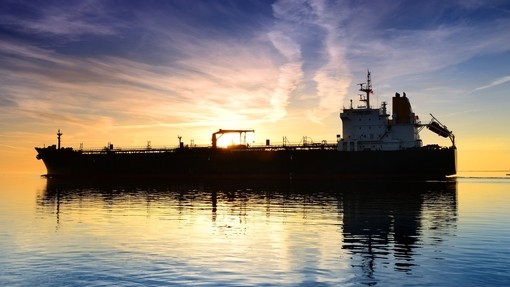OFSI updates its financial sanctions guidance for maritime sector

OFSI updates its financial sanctions guidance for maritime sector
The Office of Financial Sanctions Implementation (OFSI) is the UK government authority that implements financial sanctions in the UK.
On 5 March 2024 , OFSI published an updated revised guidance to financial sanctions in the UK aimed at the maritime sector. This sector-specific guidance supplements the OFSI’s general sanctions guidance and is intended to assist the shipping industry in navigating the challenges impacted by financial sanctions. It is separate to the Oil Price Cap guidance on Russian oil and should be read in conjunction with that guidance.
The global reach of shipping means that it is more exposed than other sectors to sanctions evading tactics and illicit practices. The guidance, therefore, aims to assist shipping businesses in complying with sanctions regulations, implementing suitable due diligence measures, addressing potential exposure, and dealing with high-risk jurisdictions (higher-risk jurisdictions are identified in the guidance as Russia, Iran and Democratic People’s Republic of Korea).
The guidance is aimed at UK nationals in the maritime sector, all maritime entities with UK ties, whether operating within UK territories or affiliated with UK entities, and also marine insurers.
Due diligence
The following organisations in particular are encouraged to implement due diligence practices as they may be particularly exposed to illicit practices:
- maritime insurance companies
- charterers
- classification societies
- suppliers of cargo
- customs and port state controls
- flag registries
- ship brokers
- ship owners
- bunker suppliers
- shipyards
- financial institutions involved in maritime trade finance.
Among other good practice recommendations are the following:
- Where conducting business in or around high-risk countries: obtaining independent local legal advice, understanding the sanctions regime(s) in place, operating a risk-based approach and conducting enhanced due diligence as appropriate;
- Implementing a strong sanctions compliance programme proportionate to the risk faced and providing training and resources to staff: among other things, routinely checking UK Sanctions List and OFSI Consolidated List;
- Improving know your customer (KYC) and counterparty checks: for example, verifying information and documentation provided about the (ultimate) beneficial owner of a vessel in a trade or transaction, and/or identifying the end-user of cargo;
- Using subscription-based resources or free online tools to check ownership structures, vessel flag details, home ports and recent ports visited;
- Monitoring sanctions information sharing: e.g. industry groups taking pro-active steps to raise awareness of financial sanctions and encourage the sharing of best practices; vessel owners and P&I clubs collaborating with the financial industry; and flag administrations regularly checking information with the IMO.
Common evasion practices
The maritime industry has experienced increasing dark fleet activity in recent years, primarily, although not exclusively, for sanctions evasion purposes. Determining whether a vessel is part of the dark fleet is not always straightforward and those engaging in illicit practices may rely on a number of deceptive practices to conceal vessel origins and ownership. It is important for those in the industry - including port authorities, shipowners and operators, flag registries, freight forwarders, classification societies and insurers – to be aware of the risks and to perform their due diligence.
The guidance sets out numerous techniques deployed in the maritime sector intended to circumvent UK sanctions. These include:
- False flags and flag hopping
- Ship to ship (STS) transfers
- Irregular sailing patterns
- Complex ownership structures
- New vessel acquisitions
- Rotation of owner and manager companies
- False or fraudulent documentation
- AIS disablement, manipulation or spoofing
- Physically altering vessel identification
- Open registries.
Maritime insurance
Where financial sanctions are imposed, there may be prohibitions in place preventing financial services from being provided to, procured from, or for the benefit of:
- Designated persons
- Persons connected with a proscribed authority
- A prescribed description of persons connected with a prescribed country.
Direct insurance, reinsurance and retrocession, insurance intermediation, and services auxiliary to insurance are considered financial services under UK sanctions regulations.
It is prohibited for frozen funds to be used in exchange for financial services. Making economic resources indirectly available is also a breach of the regulations. For example, making coverage available to a body corporate where a designated person has indirect, or direct, ownership or control.
Proxy arrangements may also be used to evade or circumvent UK financial sanctions. Proxy arrangements may involve a third person procuring insurance on behalf of a designated person.
The insurance industry must also consider the specific prohibitions on providing insurance and reinsurance services relating to aviation, space goods or aviation and space technologies under Regulation 29A of the Russia (Sanctions)(EU Exit) Regulations 2019.
There are also specific prohibitions relating to providing insurance for shipments of Russian oil or diamonds into the UK.
Ownership and control
The OFSI general guidance states that an entity is owned or controlled directly or indirectly by another person in any of the following circumstances:
- The person holds (directly or indirectly) more than 50% of the shares or voting rights in an entity
- The person has the right (directly or indirectly) to appoint or remove a majority of the board of directors of the entity, or
- It is reasonable to expect that the person would be able to ensure the affairs of the entity are conducted in accordance with the person’s wishes.
The maritime guidance recommends that, due to the complex relationships present in the maritime shipping sector, it may be appropriate to also consider the ultimate beneficial ownership of the following when making determinations of ownership and control:
- Ports
- Terminal operators
- Charterers
- Operators
- Cargo owners
- Suppliers
In April 2024, the UK Supreme Court is due to hear the appeal in Boris Mints -v- PJSC National Bank, in which the Court of Appeal dealt among other things with the meaning and scope of “ownership and control” under UK sanctions legislation.
Compliance
The guidance highlights OFSI’s powers to impose significant financial penalties for breach of sanctions regulations and also to refer cases to law enforcement for investigation and potential prosecution. Breaches of financial sanctions are considered a serious criminal offence and may be subject to custodial sentences.
Comment
The revised maritime guidance was published shortly after issuance of the UK Government’s sanctions strategy paper, called “Deter, Disrupt and Demonstrate – UK sanctions in a contested world” as well as an update from OFSI on its licensing process and policies.
These initiatives, among others, demonstrate the UK Government’s ongoing commitment to enhancing and enforcing UK sanctions and to assisting the maritime and other business sectors to understand their risks and reduce their exposure.






